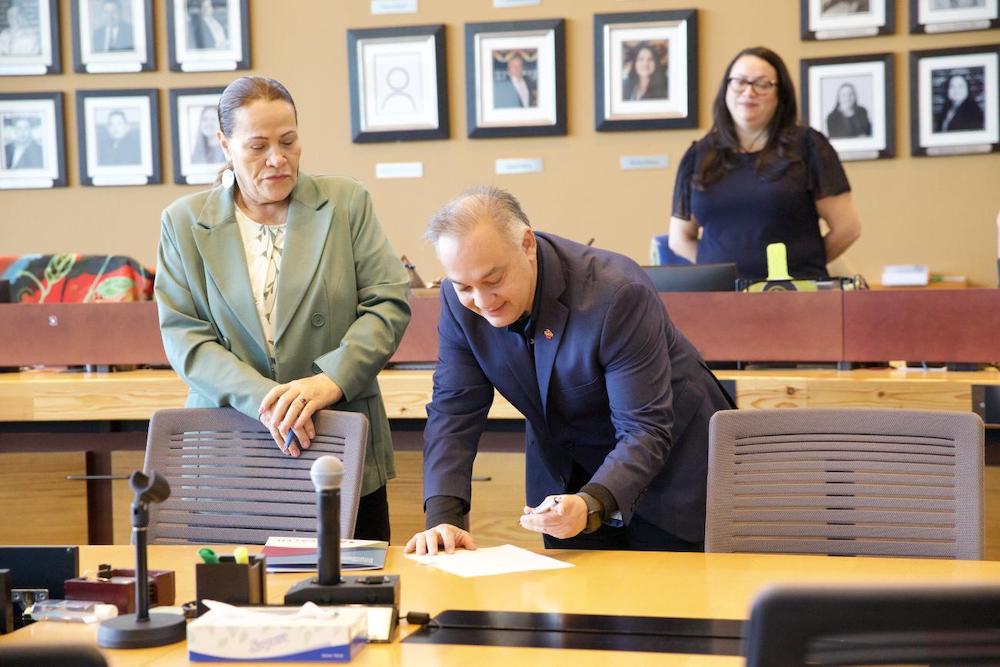
- Details
- By Tribal Business News Staff
The Washington State Department of Health (WSDOH) and the federally recognized Tulalip Tribes have signed the state’s first-ever data sharing agreement.
The agreement will govern WSDOH’s use of the tribe's public health data, including how it is collected, where it is stored, and how it is used in WSDOH data sets. The agreement upholds the tribe’s inherent right to govern how the state agency’s data usage impacts their community, according to a joint press release.
The agreement also gives the tribe expanded access to public health data to improve health outcomes, monitor outbreaks, and identify health trends. Initial access will focus on the Washington Disease Reporting System, where providers and labs report notifiable conditions like COVID-19, lead levels in children and Mpox, the viral illness caused by the monkeypox virus.
Tulalip Chairwoman Teri Gobin said the agreement ensures “vital” transparency in collaborative efforts between WSDOH and Tulalip, while still safeguarding tribal data. Gobin acknowledged the work of the Governor’s Indian Health Commission and the American Indian Health Commission in developing data sovereignty principles, while emphasizing that tribes have long been denied access to their own information.
“For years paternalism towards Indigenous people has locked tribes out of information gathered from us and about us,” Gobin said in a statement. “Tribes have an inherent right to own data about us and determine how the data is collected, shared, and used. This formal agreement is a wonderful first step towards a respectful relationship that will benefit both public health agencies and the well-being of tribal communities.”
WSDOH Chief of Policy Kristin Peterson called the agreement a “milestone” for all involved, though she noted that more work remains ahead.
“This data sharing agreement represents a further expression of the state’s commitment to its government-to-government relationship with Tribes and reinforces the belief that Tribes must have access and ownership of their public health data to protect their communities,” Peterson said in a statement.
The agreement is emblematic of a nationwide push for tribal data sovereignty across health, economic development, and cultural preservation. PreviousTribal Business News reporting points to data sovereignty as a chief concern amid growing connectivity and digitization of tribal records and culture.
Can we take a minute to talk about tribal sovereignty?
Our mission draws from the warrior spirit that has sustained Indigenous peoples for generations — the same spirit that drives us to stand guard over tribal rights through relentless investigation and fearless reporting.
Sovereignty isn't just a concept – it's the foundation of Native nations' right to govern, protect our lands, and preserve our cultures. Every story we publish strengthens tribal sovereignty.
Unlike mainstream media, we center Indigenous voices and report directly from Native communities. When we cover land rights, water protection, or tribal governance, we're not just sharing news – we're documenting our living history and defending our future.
Our journalism is powered by readers, not shareholders. If you believe in the importance of Native-led media in protecting tribal sovereignty, consider supporting our work today.
